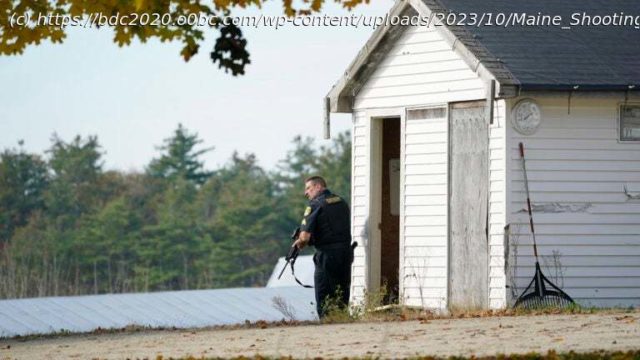Investigators are still searching for a motive for the massacre, but have increasingly been focused on Robert Card’s mental health history.
Police missed two clear opportunities to end a dragnet that locked down and terrified Maine’s second-largest city after a gunman killed 18 people at a bowling alley and a bar following a recent spiral into paranoia.
The body of Robert Card was found Friday in a trailer at a recycling center in Lisbon Falls that police had searched a day earlier. Card died of an apparent self-inflicted gunshot wound, but it was unclear when, authorities said.
The 40-year-old was suspected of also injuring 13 people during the shooting rampage on Wednesday night in Lewiston.
Lisbon Police Chief Ryan McGee said law enforcement scoured the Maine Recycling Corp. property, where Card once worked, and cleared it on Thursday, but did not check another part of the company’s land nearby. Officers came back early Friday morning and again found nothing.
Another team returned that evening and searched the other part of the property that had not been checked, and found Card’s body in the trailer along with two firearms, McGee said. A rifle had been found Wednesday night in Card’s abandoned car nearby.
Authorities recovered a multitude of weapons during their search for Card and believe he had legally purchased his guns, including those recovered in his car and near his body, said Jim Ferguson, the special agent in charge of the Boston office of the Bureau of Alcohol, Tobacco, Firearms and Explosives. He declined to provide specific details about the guns, including their make and model, and wouldn’t say exactly how many were found.
Investigators are still searching for a motive for the massacre, but have increasingly been focused on Card’s mental health history. State Department of Public Safety Commissioner Michael Sauschuck said Card was hearing voices and had paranoia, adding that he believed “people were talking about him and there may even have been some voices at play.”
Last summer, Card underwent a mental health evaluation after he began acting erratically at an Army training facility in New York, officials said. A bulletin sent to police shortly after this week’s attack said Card had been committed to a mental health facility for two weeks after “hearing voices and threats to shoot up” a military base.
At a news conference Saturday, Sauschuck said there was no evidence that Card had ever been involuntarily committed to a mental health facility, which could’ve made it illegal for him to possess guns. A simple evaluation or voluntary commitment would not have triggered such a prohibition, he said.
Under Maine’s yellow flag law, law enforcement can detain someone they suspect is mentally ill and poses a threat to themselves or others.
Домой
United States
USA — mix Maine mass killing suspect had mental health issues, purchased guns legally, authorities...






